|
Home →
Algonquin Winter Tracking
Algonquin Winter Tracking Expedition 2005
|
Thursday (Day 5)
|
| Today was our last full day, and our last day out in the
bush doing actual tracking. Once again, using the radio telemetry
equipment, the early morning scouting crew found some wolf activity for
us to investigate. We headed west along Hwy 60 and headed off into the
bush from the road. |
| |
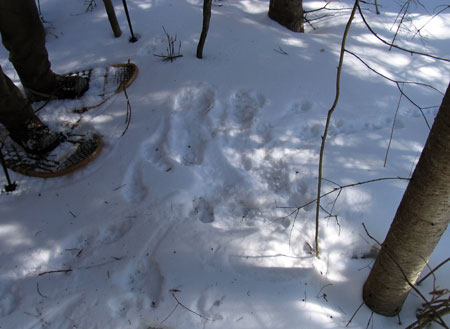 |
Not far from the highway we
found this resting spot of one wolf. This wolf was resting
facing away from the camera.
If you look closely, you can see its front paws and legs
at the top of the photo, its rear legs at the bottom near
the very thin shrub, and even the mark of its tail below
that (a sort of semi-circular mark on the snow). |
|
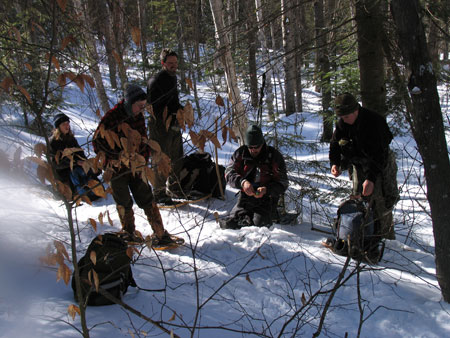 |
Examining some wolf scat. |
|
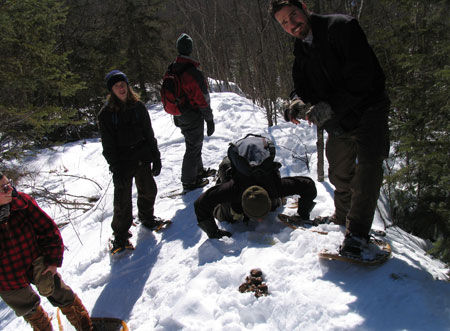 |
Further into the forest, we
came upon a lot of moose signs. Here Alexis is examining a
pile of moose scat very closely. |
|
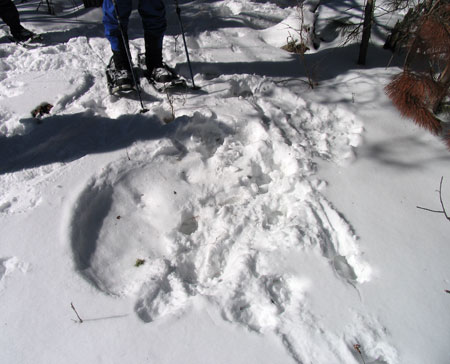 |
Nearby we found this very
clear moose lay. The feet are at the bottom of the photo,
the animal's back and rear were towards the left of the
photo, and its head at the top. |
|
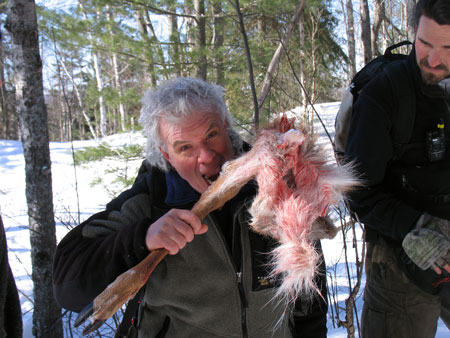 |
Not far beyond this we found
the leg of a deer, leading us to feel that we were possibly
getting close to some "action". Rob was a bit hungry! :) |
|
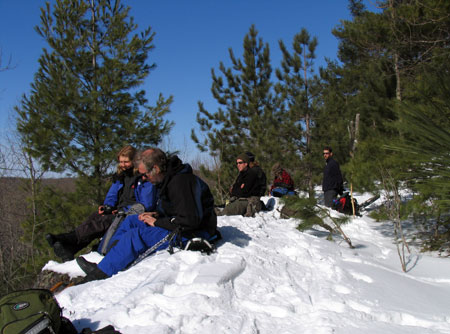 |
A beautiful lunch stop, with a
spectacular view overlooking forest and lakes stretching out
for miles! It was quite a day -- calm, sunny, and not too
cold. |
|
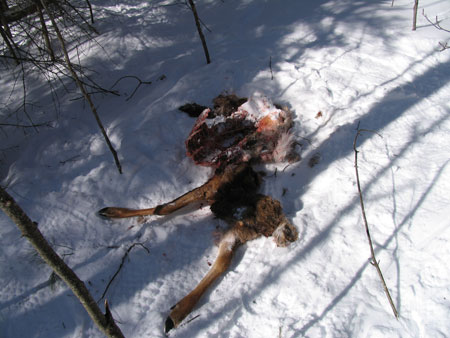 |
After lunch we thoroughly
investigated the site of a nearby deer kill. Here's what's
left of the deer after the wolves had finished. |
|
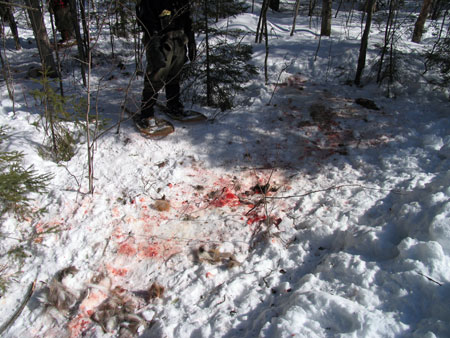 |
This is the site where the
deer was brought down by the wolves. We determined that the
deer had been ambushed by the wolves. It tried to flee but
was brought down in short order. In case you're feeling
sorry for the deer right about now (what some call the "bambi
complex"), please bear in mind that both the deer AND the
wolves are a natural and necessary part of this ecosystem.
The deer live by eating plants. The wolves live by eating
other animals. It's all part of the natural order and rhythm
of nature and the Earth. |
|
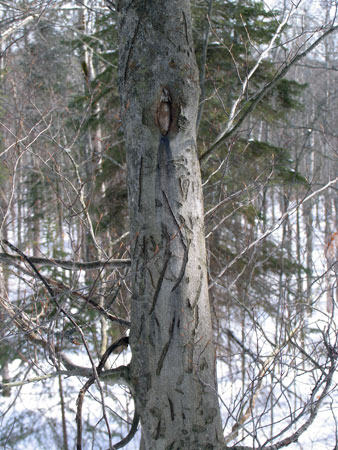 |
After spending some time at
the kill site, we headed back towards the highway. Along
the way we found this beech tree that has been marked
continually by bears over a period of many years. The marks
you se are the claw marks of black bears. |
|
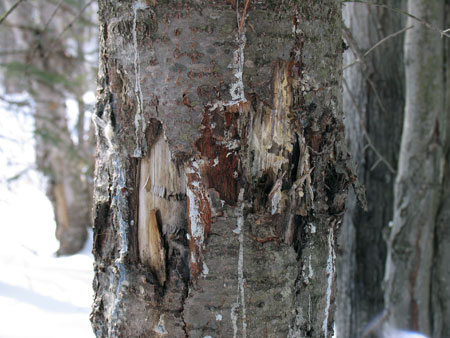 |
And another example of a bear
bite on a tree. The horizontal mark of a bear's tooth can be
seen on this tree. |
|
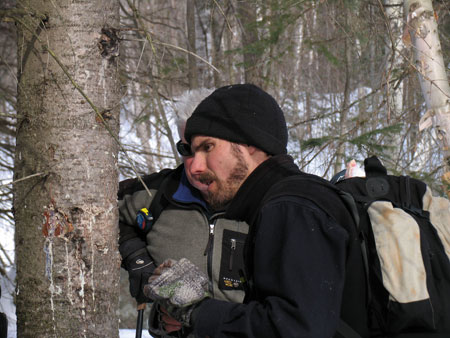 |
Further down we found a few
hairs from the bear. Here's Dan, the expedition leader and
organizer, examining the bear bites and hairs. |
|
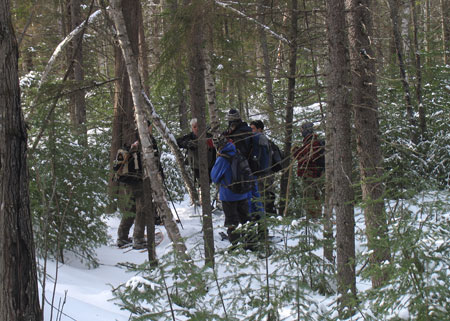 |
We also came across marten and
snowshoe hare tracks in the balsam fir forest. We took time
to examine the ecology of forest succession as well. |
|
| |
| All in all, quite a day of tracking! Again! That
evening we watched a very interesting presentation by one of the wolf
ecologists who was working on his thesis in the Park. |
| |
|
Previous
Next |
|
|